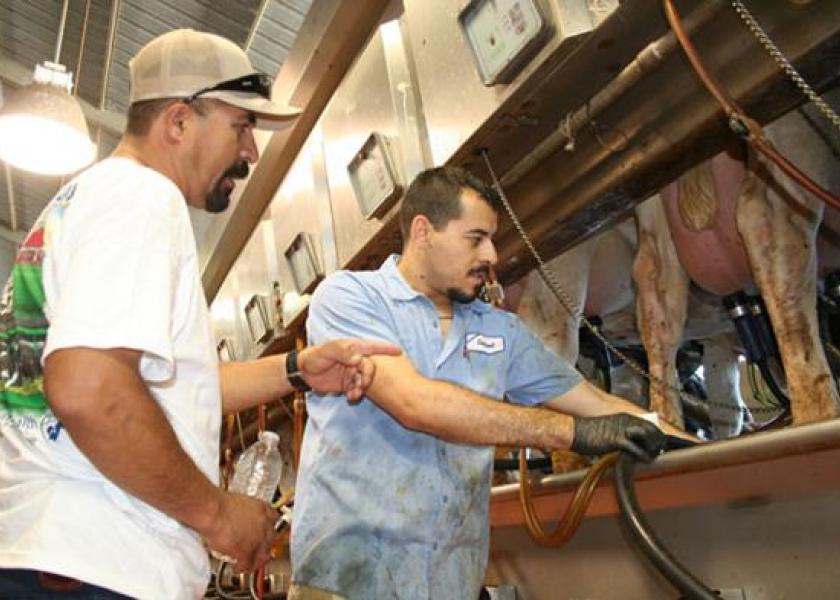Make Day One a Good Start for Your Employees

Ways for dairies to provide a positive experience for new hires.
Ever have a new employee not return after the first day on your dairy?
That’s not the result you want after spending time to recruit, interview, check references, evaluate and select new hires.
You can help assure a better outcome if you make appropriate efforts to get your new employees off to a good start on the very ?rst day, said Melissa O’Rourke, a, Iowa-based farm and agribusiness management specialist and attorney. Speaking at an educational seminar Friday at World Dairy Expo, O’Rourke offered ways for dairies to provide a positive experience for new employees.
"Many owners and managers have never worked for anyone but their family operation, so they may not understand that new employees don’t know the fundamentals of your dairy," said O’Rourke.
When the employment offer has been accepted, a start date should be agreed upon as soon as possible. Inform the employee of what will happen on the ?rst day of work. Clearly communicate when he or she is expected to arrive.
You can help your new employee by providing answers to common basic questions. Send the employee a letter by U.S. mail or an e-mail with answers to these kinds of questions:
Q. "What should I wear?"
A. "A recent study showed that 85% of Americans are two generations removed from the farm," O’Rourke told the audience. "Don’t assume that new employees know what they should wear to work." Provide guidelines on footwear, gloves or other appropriate attire. Particularly in dairy and other livestock operations, there are biosecurity guidelines, and some attire may be provided. Inform new employee that they will be trained on these biosecurity procedures.
Q. "Should I bring my lunch or snacks and beverages?"
A. Some farm work sites provide a noon meal or snacks and beverages. Others don’t. Some groups of farm workers stop in town for lunch each day. Let new employees know your farm’s practice and what they should bring to work.
Q. "Where do I park?"
A. If the new employee is expected to have a vehicle to use in the position, this should have been communicated during the pre-employment process. Let employees know where they are expected to park -- or not park -- at the farm site.
Q. What documents should I bring on my ?rst day of work?
A. The new employee will complete a Form I-9, as well as other basic forms on the ?rst day of work. Inform him or her of what documents should be brought to work on the ?rst day to assist in completing forms necessary for compliance with state and federal law. The Checklist for Iowa Agricultural Employers on the Ag Decision Maker offers a list of those forms and links to instructions.
Q. "What should I bring -- not bring -- to work?"
A. If the employee is expected to have a cell phone, that should be communicated. Some employees may need to be instructed that electronic music devices cannot be used on the job. Likewise, if the farm is tobacco- or smoke-free, the new employee should be so instructed.
Q. "What will I do on my ?rst day of work?"
A. Tell the new employee what he or she will do on the ?rst day (or week) of work. Make sure that work hours (including break policies) have been clearly communicated. Provide a general outline of initial orientation and training activities. This will decrease the new employee’s apprehension or confusion and help to get the new employee off to a good start with a planned orientation program, as well as initial and ongoing training opportunities.
New employees should be promptly greeted on the ?rst day of work, O’Rourke added. Introduce the employee to other workers and family members.
"Nametags can be helpful to the new person, as it can be very confusing when meeting multiple people in the early days of employment," she said.
Immediately show the new worker the location of the restrooms and other break areas. Until you’re certain that the new employee has been thoroughly trained in farm safety practices and procedures, that person should be accompanied by someone who is properly trained.
"At the end of the ?rst day, ask your new employee if there are any questions or concerns," said O’Rourke. "Offer the new employee assurances about how the ?rst day went and again offer information about what will happen in those early days on the new job."
Find more information here.







